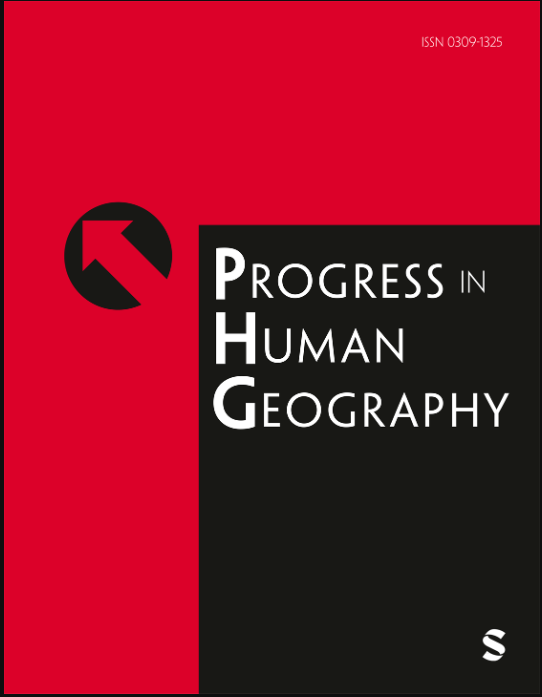多重危机交织下的社会生态不稳定性
IF 6.1
1区 社会学
Q1 GEOGRAPHY
引用次数: 0
摘要
本综述借鉴了有关不稳定的批判性地理学的文献,以及女权主义对非人类和超人类地理学和政治生态学的解读,提出了一个社会生态不稳定框架,以解决在讨论和研究非人类脆弱性、抵抗形式以及社交和关爱基础设施方面存在的差距。社会生态不稳定性被认为是关系性的、政治性的和变革性的。本文章由计算机程序翻译,如有差异,请以英文原文为准。
Socio-ecological precarity at the juncture of multiple crises
Drawing upon the literature on the critical geographies of precarity, as well as feminist readings of non- and more-than-human geographies and political ecologies, this review proposes a socio-ecological precarity framеwork to address gaps in discussions and examinations of nonhuman vulnerabilities, forms of resistance, and infrastructures of conviviality and care. Socio-ecological precarity is posited as relational, politically generative, and transformative.
求助全文
通过发布文献求助,成功后即可免费获取论文全文。
去求助
来源期刊

Progress in Human Geography
GEOGRAPHY-
CiteScore
16.40
自引率
7.00%
发文量
56
期刊介绍:
Progress in Human Geography is the peer-review journal of choice for those wanting to know about the state of the art in all areas of research in the field of human geography - philosophical, theoretical, thematic, methodological or empirical. Concerned primarily with critical reviews of current research, PiHG enables a space for debate about questions, concepts and findings of formative influence in human geography.
 求助内容:
求助内容: 应助结果提醒方式:
应助结果提醒方式:


